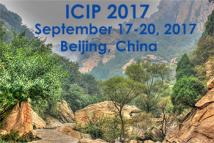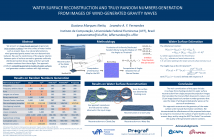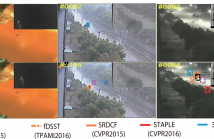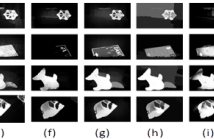
The International Conference on Image Processing (ICIP), sponsored by the IEEE Signal Processing Society, is the premier forum for the presentation of technological advances and research results in the fields of theoretical, experimental, and applied image and video processing. ICIP has been held annually since 1994, brings together leading engineers and scientists in image and video processing from around the world. Visit website.
- Read more about ADABOOST-BASED DETECTION AND SEGMENTATION OF BIORESORBABLE VASCULAR SCAFFOLDS STRUTS IN IVOCT IMAGES
- Log in to post comments
In this paper, we presented an automatic method for BVS struts detection in IVOCT images based on Haar-like features and Adaboost algorithm. Then, DP algorithm was used for struts segmentation. Based on the detection and segmentation results, apposed and malapposed struts were distinguished automatically. The qualitative and quantitative evaluation shows that our method is effective and robust for BVS struts detection and segmentation, and is capable of malapposition analysis.
ICIP_POSTER2501.pdf
- Categories:
 10 Views
10 Views
- Read more about Water Surface Reconstruction and Truly Random Numbers Generation From Images of Wind-Generated Gravity Waves
- Log in to post comments
We present an image-based approach to generate truly random numbers from the surface of water bodies such as oceanic bays. As a natural phenomenon, wind-generated gravity waves have non-deterministic behavior. We use the randomness of the angular relation between pairs of estimated surface normals to generate uniformly distributed random binary digits and build random numbers from those digits. Our approach produces compelling geometric models of water surfaces and generates random numbers with high entropy.
- Categories:
 18 Views
18 Views- Read more about IMAGE GUIDED DEPTH ENHANCEMENT VIA DEEP FUSION AND LOCAL LINEAR REGULARIZATION
- Log in to post comments
Depth maps captured by RGB-D cameras are often noisy and incomplete at edge regions. Most existing methods assume that there is a co-occurrence of edges in depth map and its corresponding color image, and improve the quality of depth map guided by the color image. However, when the color image is noisy or richly detailed, the high frequency artifacts will be introduced into depth map. In this paper, we propose a deep residual network based on deep fusion and local linear regularization for guided depth enhancement.
- Categories:
 38 Views
38 Views
Visual context has formed a robust stimulation for visual perception. Spatio-temporal context in existing trackers sometimes shows weak reliability in visible light videos with poor quality. Supplemented by the infrared perception, this work exploits the role of visual context in tracking in a spatial-sequential-spectral view, by which to excavate dominance of different contexts in various scenarios.
- Categories:
 9 Views
9 Views
- Read more about A SEMI-GLOBAL MOTION ESTIMATION OF A REPETITION PATTERN REGION FOR FRAME INTERPOLATION
- Log in to post comments
In motion compensated frame interpolation, a repetition
pattern in an image makes it difficult to derive an accurate
motion vector because multiple similar local minima exist in
the search space of the matching cost for motion estimation.
In order to improve the accuracy of motion estimation in a
repetition region, this paper attempts a semi-global approach
that exploits both local and global characteristics of a
repetition region. Experimental results demonstrate that the
proposed method significantly outperforms the previous local
- Categories:
 18 Views
18 Views
- Read more about SALIENCY DETECTION VIA LOCAL SINGLE GAUSSIAN MODEL
- Log in to post comments
ICIP 1195.pdf
- Categories:
 10 Views
10 Views- Read more about Prostate detection and segmentation based on convolutional neural network and topological derivative
- Log in to post comments
The topological derivative (TD) for shape analysis has been employed
in image segmentation, and machine learning schemes based on
convolutional neural network (CNN) provide the high performance in
the image processing. The supervised and unsupervised approaches
have different roles and advantages according to their concepts. To
maximize the benefits of two approaches, we propose CNN-TD based
segmentation approach. A CNN-based segmentation scheme is employed
to faithfully consider the characteristics of an object to be
- Categories:
 7 Views
7 Views- Read more about Human-human interaction recognition based on spatial and motion trend feature
- Log in to post comments
- Categories:
 7 Views
7 Views- Read more about Part Based Fine-grained Bird Image Retrieval Respecting Species Correlation
- Log in to post comments
poster.pdf
- Categories:
 3 Views
3 Views- Read more about Selective Motion Estimation Strategy Based on Content Classification for HEVC Screen Content Coding
- Log in to post comments
Slides.pdf
- Categories:
 19 Views
19 Views